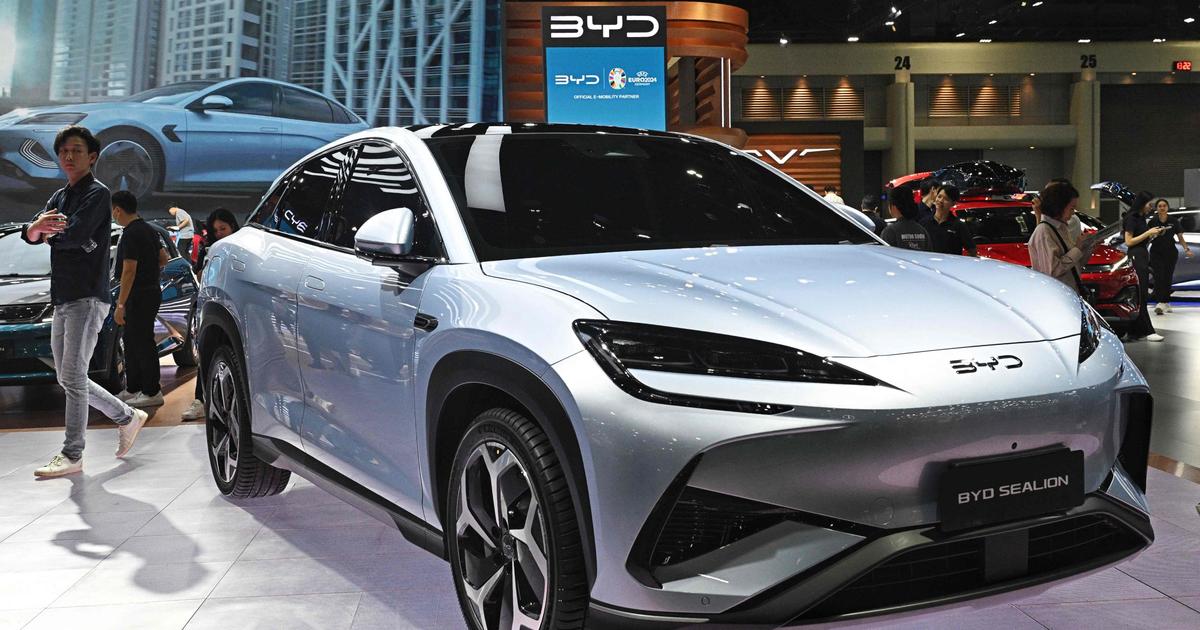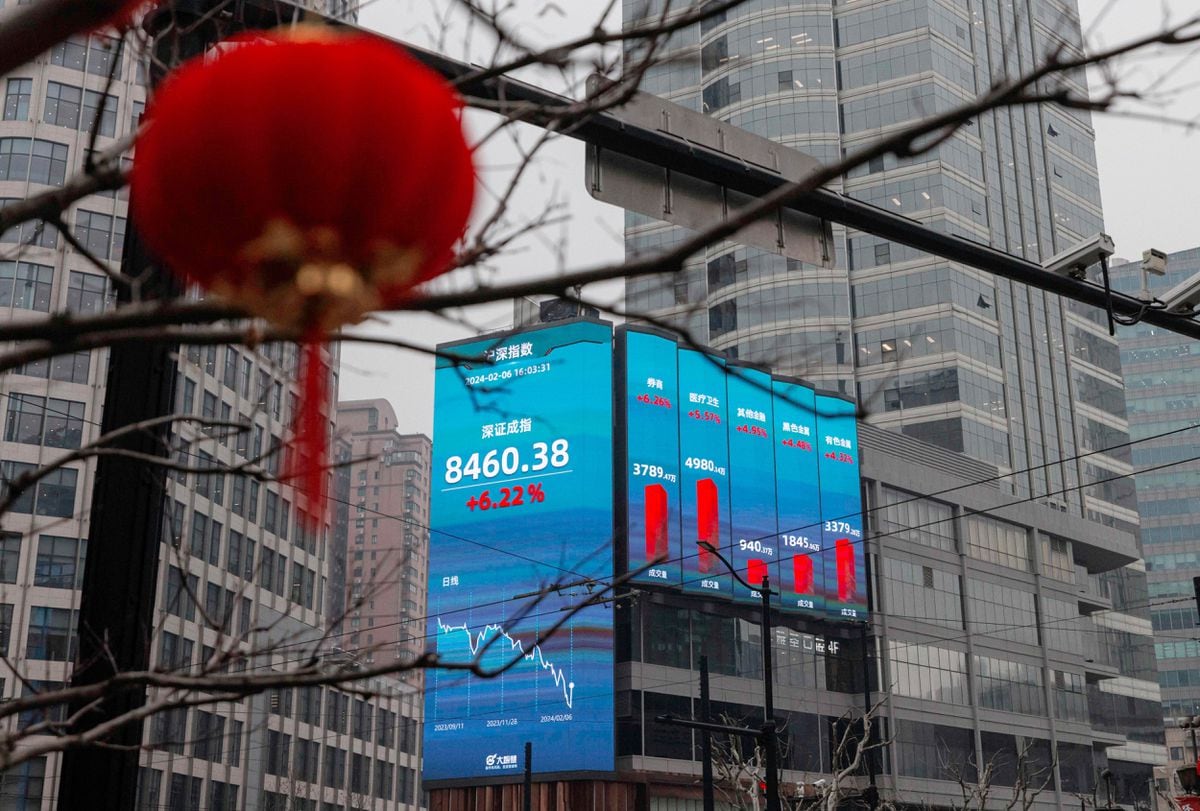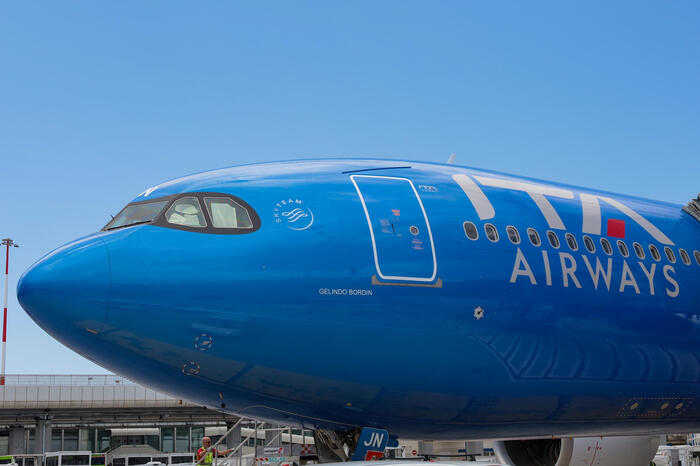Relations between Brussels and Beijing are going through difficult times. After the 27 imposed in March the first sanctions against China since the Tiananmen crisis (1989) for human rights violations against the Uighur minority, the EU wants to rearm itself to limit the power of companies injected with public capital. The tension between the two blocks jeopardizes the investment agreement reached last December, pending ratification. The vice-president of the Commission, Valdis Dombrovskis, defends this pact and believes that the objectives remain "in force", but admits that "the ratification process cannot be separated from the dynamics of relations between the EU and China".
"The retaliatory sanctions against the members of the European Parliament [after those adopted by the EU] will not facilitate the process," says the Latvian politician in an interview on Monday with EL PAÍS and the
Süddeutsche Zeitung
.
Dombrovskis, in charge of the powerful Trade portfolio, has come to reel off the agenda facing the EU in a conference that Brussels organizes every year and in which he has shared a panel with the director general of the World Trade Organization (WTO), Ngozi Okonjo-Iweala.
More information
EU and China finalize major investment deal despite Biden's misgivings
The EU passes the first sanctions against China since the Tiananmen crisis
Dombrovskis relies on the backing of the US, whom the EU had to do without during the Donald Trump era, to make a leap in the decarbonization of the economy, face the challenge posed by technology or guarantee an equitable distribution of vaccines at scale global. “First, we have to resolve the bilateral disputes left over from the Trump era. We have already suspended the tariffs on the Airbus and Boeing cases and are discussing how to address the tariffs on steel and aluminum. But, in parallel, we need to discuss how we cooperate internationally in the reform of the WTO, including the restoration of the functioning of the appeals body, ”he says.
Since he began preparing for his arrival at the White House, Joe Biden has made a joint approach with the EU to curb China's evil arts as a priority. Brussels, however, decided to close an investment agreement after seven years of negotiation. That pact, according to Brussels, offered a better deal for European companies operating in the Asian giant in exchange for concessions from Beijing in the fight against climate change or labor rights. The pact immediately caused misgivings in the European Parliament.
In just four months, moreover, the tone of relations between Brussels and Beijing has changed. The EU aligned itself with the US, the UK and Canada and decided to sanction four Chinese leaders and one body for human rights violations against the Uighur minority in the Xinjiang region. The reaction was immediate and the Chinese regime did the same with 10 people and four EU bodies, including several MEPs, such as the head of the European parliamentary delegation on China, the German Reinhard Butikofer (The Greens).
Despite the fact that they may seem symbolic, the measures put the European Parliament in check, the institution that must ratify that agreement.
Parliamentary sources believe that, in fact, the sanctions make the pact impossible.
The Vice-President of the Commission admits the difficulties.
"The prospects on how to move forward with the agreement will depend on how the overall situation evolves," he says.
Accelerate vaccine production
Dombrovskis continues to defend the pact - which was signed with the endorsement of the capitals - because he believes that its objectives are still alive.
"Economic relations between the EU and China are unbalanced, in the sense that the EU market is substantially more open to Chinese companies and investments than the Chinese market is to the EU," he says.
The Vice President of the Commission believes that the agreement provides tools to correct this situation.
“There are substantial new commitments from China on market access or a level playing field, also on sustainable development.
There are very few additional commitments from the EU, basically we will maintain our level of openness ”.
The Commission is about to launch another challenge to China.
Brussels will formulate a proposal next week to protect the EU from the voracity of heavily subsidized companies.
Without mentioning it directly, the measure looks to Beijing, with a huge group of companies exhibiting financial muscle thanks to state aid.
According to community sources, the Executive of Ursula von der Leyen will propose a system of notifications and evaluations for purchases from a certain value made by companies with public capital. During the consultation period, some employers expressed their fears that a threshold that was too low could discourage direct foreign investment, also from other countries.
Brussels also advocates a mechanism to stop the participation in European public tenders of companies that come from countries that hinder EU firms. "It is important to move towards the approval of this instrument because it will help rebalance our relations with third countries in the field of public procurement," says the vice president, who indicates that Portugal - which has the rotating presidency of the EU - is "working intensely ”to reach a common position.
On the very short-term agenda, however, Dombrovskis is challenged to “accelerate global vaccine production,” which requires cooperation between those with the know-how and those with the manufacturing capabilities.
So far, the EU has exported 136 million vaccines, half of its production.
The Commission wants others, like the US, to follow suit.
"It is something that we also discuss at the WTO level and in other forums."
Objective: save the agreement with Mercosur
The opposition of several countries, including Austria and France, to the ratification of Mercosur puts in check the approval of the largest trade agreement ever signed by the European Union. Despite environmental safeguards, several environmental entities argue that the agreement would lead the bloc of Argentina, Uruguay, Paraguay and Brazil to breach the Paris Agreement and aggravate the deforestation process.
The Vice President of the European Commission and Trade Commissioner, Valdis Dombrovskis, has set out to save an agreement that Spain, Sweden or Portugal defend tooth and nail. “We continue working to achieve additional commitments on the environment and deforestation, adherence to the Paris Agreement and tangible steps to address deforestation in the Amazon. We are going to get a document that will help resolve additional commitments in this area. It is a concern that we take seriously ”, says the European Vice President.
However, not all countries reject the agreement due to the environmental issue. Ireland has expressed the difficulties it has with its agriculture and livestock sector. Dombrovskis maintains that the negotiation was very "sensitive" to these sectors and recalls that there are "safeguard clauses" in the event of a "sudden increase in imports" and support mechanisms for EU farmers. In any case, there is time until the end of the year for the final agreement to be presented to the European Parliament and to the countries.

/cloudfront-eu-central-1.images.arcpublishing.com/prisa/AYWF3ZZFCNA55CRUNMY6LMPOSQ.jpg)







